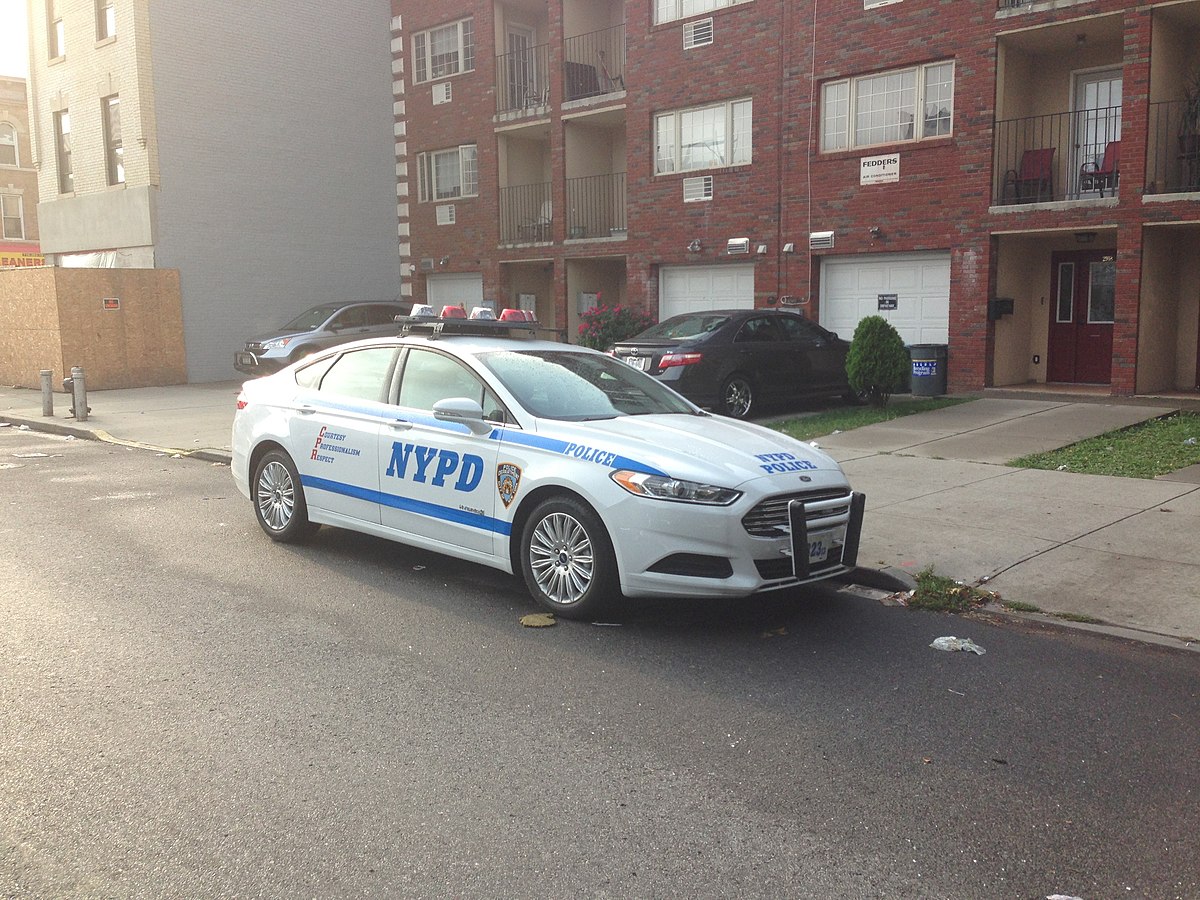Social Media in the Age of Ferguson
Posted on December 8, 2014

"NYPD Ford Fusion Hybrid 2013" by Gcin1987 - Own work. Licensed under CC BY-SA 3.0 via Wikimedia Commons.
You can go on any Facebook page across America and find a pretty fulsome discussion about Ferguson.
Is that a good thing or a bad thing?
Social media is driving the story on race relations in this country.
Historians are going to have a field day researching how people really felt in this era about their friends, neighbors, colleagues and acquaintances.
Friends of mine have felt free to share their own stories about being harassed by cops.
A comedy writer for Jimmy Fallon decided to share some stories about how he got away with some questionable behavior because he was white. I guess he thought he was being funny, but it turned out it wasn’t that funny to a lot of black folks.
Cops are great if they are protecting you from the bad guys. They are not so great if they think you are the bad guy.
Too many folks in the African American community believe that the police unfairly target them. And they are probably right, although there is plenty of evidence that there is a ton more violence in black communities than anywhere else.
Violence doesn’t hit those neighborhoods because of the cops. Violence happens in those neighborhoods when the cops are there or when they are not there. And you can make the case that the violence gets worse when the cops are not there.
A new poll just came out and it found that a majority of Americans believe that race relations are worse under President Obama then they were before he was elected to the White House.
That’s not surprising.
There were unreasonable expectations that we were entering a post-racial America when Mr. Obama was elected. And there was sure to be a reaction to the President taking office, not only from white people reacting to a black President, but also from conservative Americans reacting to a liberal President.
White conservative frustration translated mostly in the political realm, and mostly in two mid-term elections, where Republicans did far better than anybody could have anticipated.
There has been no violent struggles, no armed revolutions. There has been a rise in white supremacist militias, but that happened during the Clinton Administration too.
For most of the President’s tenure, crime has steadily decreased, which is especially notable, given the faltering economy.
That hasn’t been true everywhere, though. Crime is still unacceptably high in black neighborhoods in Chicago, for example.
The protests in Ferguson have spread in other parts of the country, thanks to the acquittal of the police officer implicated in the strangling death of Eric Garner.
Most of those protests have been stage managed by professional organizers. Some have turned violent, but most have been nothing more than a nuisance.
Discussions on social media are fascinating. On Facebook, people generally try to be polite. Twitter, not so much. Comments at the bottom of news articles? Forget about it.
I think it is good to have these discussions out in the open, although I would prefer that people fully identify themselves, so that they have to defend their views in the public square.
It is clear that the history of racial animosity in this country skews how you look at current events. If you are black, you look at the Grand Jury decisions and you feel disgust. If you are not black, you probably have a different reaction, although you might not.
We won’t get to a common understanding with one another until we have a common appreciation what our friends, colleagues and co-workers are really feeling.
We won’t get agreement on solutions until we get agreement on what the real problems are.
We are making steady progress, but we won’t get to an ideal society until we give up the whole idea of race in the first place, and look at each individual as an individual.
We started this country, based on the proposition that the only folks who really mattered were white, Christian, Protestant men. Slowly but surely, those white, Christian Protestant men were forced to open up the process, first to Catholics, then Jews, then Asians, then blacks, then Hispanics, then women, then Muslims, then non-believers, then Gays and now to just about everybody, as long they are here legally. That will probably change too.
And what we have learned through that process is that when we look at people not as people, but as numbers or races or tribes or as something bigger than they are, and when we make laws based not on the individual but on those other classifications, we tend to dehumanize that individual.
We will find out eventually that all Americans, no matter what tribe they come from, all have a desire to live in this country free from government harassment, free from neighborhood violence and free from the historic bonds that have thwarted their dreams and ambitions.
We aren’t there yet. We aren’t even close. But we press onward and upward, relentlessly and with noble purpose.
